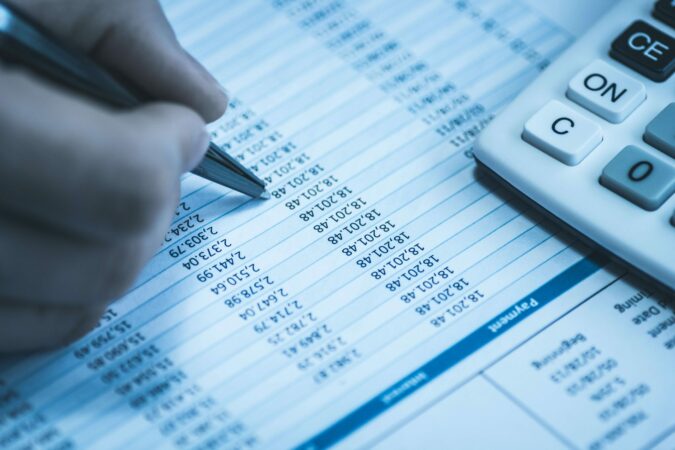Bookkeeping
Stale checks: When to act and when not to

Bankrate has partnerships with issuers including, but not limited to, American Express, Bank of America, Capital One, Chase, Citi and Discover. Julia Kagan is a financial/consumer journalist and former senior editor, personal finance, of Investopedia. There are a few ways to determine if a check is stale, whether you got it or wrote it. Allow ample time for the check to reach the intended recipient, especially if you’re sending it by mail. The Routing Number is a 9-digit number located between the Transit Symbols at the bottom of a valid U.S. check.
How Business Owners Are Affected by Checks Going Stale
Generally speaking, banks or other financial institutions have the right to refuse or reject a stale check. Checks can become stale or outdated after a certain amount of time has passed. Before cashing a check after the requested time frame, consider the reason for the payer’s request. It might be the case that they’re living on fixed income and won’t have the funds available after the specified time frame.

Unclaimed property and escheatment laws
The National Association of Unclaimed Property recommends sending a formal letter to business owners warning them that their property may become unclaimed. If informing the business owner doesn’t work, the state will step in, holding the account as a bookkeeping entry. This is because after six months, most banks and credit unions will refuse to cash checks as they consider them “stale” after this period of time has passed. Generally, a “stale check” (also called a “stale-dated check”) is an uncashed check that’s more than six months old. Although banks, credit unions or other financial institutions might let you cash or deposit an outdated check into your account, the law doesn’t require them to do so. Our mission is to provide readers with accurate and unbiased information, and we have editorial standards in place to ensure that happens.
- Banks and other financial institutions are not obligated to accept stale-dated checks (also just known as “stale checks”).
- If they still want to cash the check, offer to write them a new one — just make sure you get the old check back first, or put a stop payment order on it.
- The offers that appear on this site are from companies that compensate us.
- As stated in the article, business owners must address stale checks by notifying their original owners under the escheatment law applicable in all US states.
- Our mission is to provide readers with accurate and unbiased information, and we have editorial standards in place to ensure that happens.
- These checks can pose risks such as overdrawing the account, potential fraud, accounting discrepancies, and delayed financial reporting.
Types of Checks That Can Go Stale
Money orders generally don’t expire, but some issuers may charge a fee if the payee doesn’t cash it within a certain time frame. Another solution is to contact the person or business that wrote the check and ask them if they would issue another check to replace the stale one. A person would have to get evidence regarding the actions their bank took when it honored a stale check. This might require a person to file a lawsuit against the bank so that it can gain access to the bank’s records regarding the case.
- Before recording, check the clerk’s index to be sure that there have been no changes since the preparation of the tax bill.
- A stop-payment order is designed to stop the check from being processed and prevent the withdrawal of funds from the account to pay the check.
- Remember that escheatment laws require companies to turn over unclaimed funds.
- The states will maintain the account as a bookkeeping entry, but the previous owner of unclaimed property retains the right to make a claim.
- There are a few ways to determine if a check is stale, whether you got it or wrote it.
- The only additional task related to them is the employer must send his employee to cash it within a specific time.
In this context, an outstanding check need not be outstanding for long; it may simply be the short period of time between when a check is mailed and when it is received. Accounting inconsistencies may arise if outstanding checks are not reported and tracked in the appropriate manner. Because of this, keeping correct financial what does stale dated mean on a check records can be difficult, and it may lead to problems during audits or when reconciling finances. For example, payments may show as being paid but if the cash has not yet been debited from the account, there may be inconsistencies worth reconciling. Stale checks are uncashed checks that have been issued for at least a length of time 180 days from the issue date.


When the payee deposits the check at a bank, it requests the funds from the payor’s bank, which, in turn, withdraws the amount from the payor’s account and transfers it to the payee’s bank. When the bank receives the full amount requested, it deposits it into the payee’s account. If someone tries to cash an old check from your account, your bank might deduct the funds, even if you don’t have enough. Some checks have preprinted language stating how long they’re valid. Treasury (like a federal tax refund) are good for a year from the date they’re issued.
- It is not uncommon for businesses to delay depositing or cashing a check, particularly if the amount is relatively small.
- The best source to obtain this information is the current County Tax Bill.
- A Federal Reserve regulation says a bank doesn’t have to deposit a check if it has reason to doubt that it’ll be able to collect the money from the paying bank.
- Or, they might accept it and the issuing bank might not pay the check.
How we make money
- If you haven’t had any luck contacting the check issuer, consider working with your bank.
- If the bank is at fault, a person could explore filing a claim in court.
- A stale-dated check (also known as a stale check) is one that is not cashed within a certain time frame after the check was written, typically six months.
- Dealing with checks the bank returns as “non-negotiable-stale dated” can present significant challenges, as well as unnecessary headaches for your A/P staff.
- No, you cannot deposit a stale check into your account because, by virtue of being stale, it is not eligible to be deposited.
- Or you might reach out to your own bank and the bank that issued the check to hear their policies on stale checks.
At this point, the check is not cashable, and you must file a claim directly with the state to recover it. Hence, an employer must consult with a bank professional before trying to encash the stale-dated checks and understand the bank’s policy for which the check has been drawn in the business. Imagine a check as a normal balance perishable item with a shelf life of six months. If you miss this window, the bank won’t accept it, and you won’t get the money in your account. Cash or deposit the check within the first month to prevent any hassle or loss. In the United States, each state has laws about unclaimed property, which includes checks that have yet to be cashed within a certain time.
Do You Want Help Opening Bank Accounts?

Be considerate — call or text the payer to let them know your intent. Make sure to also double-check that they haven’t switched financial institutions or opened a new account. The offers that appear on this site are from companies that compensate us. But this compensation does not influence the information we publish, or Bookkeeping for Chiropractors the reviews that you see on this site. We do not include the universe of companies or financial offers that may be available to you.

With accounting software like QuickBooks Online, you can accept payments anytime, anywhere. It allows you to streamline check management and avoid stale-dated check issues altogether. Some business checks will have “Valid For 90 Days” noted on the check. The issuing bank’s stale check policy may not allow them to honor a business check if it is presented after the 90-day period.


